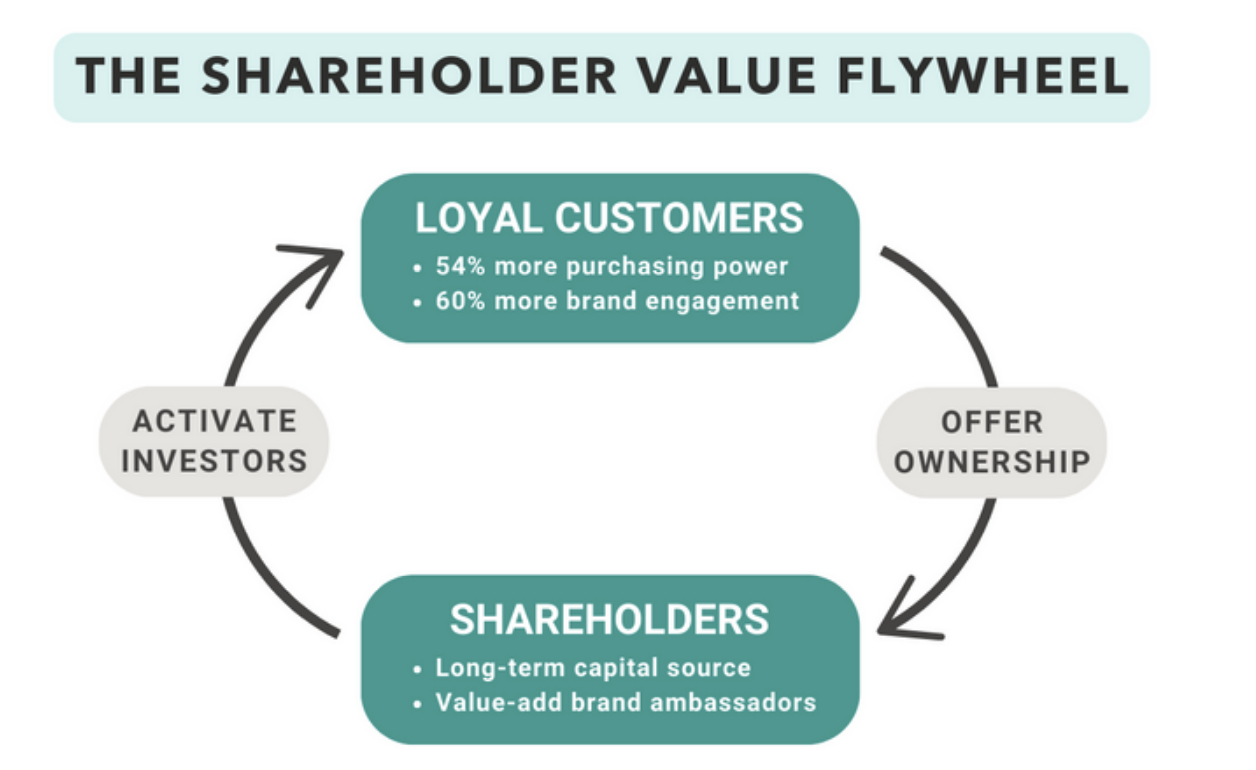Increasingly, companies are turning to Regulated Investment Crowdfunding as a strategy to raise capital and convert their customers into investors or “investomers” as many have coined the phrase. As companies consider this business strategy, it’s important they understand the concept of Lifetime Value (LTV) and its impact on Enterprise Value (EV). LTV, short for Lifetime Value of a Customer, quantifies the total revenue a business can expect to earn from a single customer throughout their entire relationship with the company. EV, on the other hand, represents the total value of a business, including its debt and equity. These crucial metrics help businesses assess their long-term profitability and overall worth.
Investment Crowdfunding is not only a way to enhance LTV but also a way to drive up EV. I recently read a white paper by the company Dealmaker entitled “The Bottom-Line Value of Turning Customers into Shareholders” which cited research and some stats that I’d been seeking. You can read the white paper here. It indicated that according to research from Bain, ownership has a significant impact on the lifetime value (LTV) of those customers as they spend 54% more money on average than non-shareholders. I’m sure it varies by industry and customer type but let’s use this 54% number as a rule of thumb combined with some other broad assumptions to make some other rough back-of-the-envelop analysis.
If a company is operating at 20% EBITDA and the enterprise value is 10x EBITDA (yeah, I know, these assumptions vary greatly by industry but let’s take them as true for this exercise), then for every “non-shareholder customer” spend of $100, the “shareholder customer” will spend $154 and the additional $54 spent will equal a $108 boost in enterprise value ($54 x 20% x 10 = $108). Extrapolating further, a non-shareholder customer that would ordinarily spend $1,000 per year is enhanced to $1,540 per year as an investomer and thus Enterprise Value increases by $1,080.
Let’s run with this concept a bit more. In a Reg CF offering under Investment crowdfunding, the max raise per year is $5 million. Industry wide, the average investment amount is about $1,150 but let’s assume $1,000 for easy math. That means that a company must reach 5,000 investors per $5M max raise. Let’s assume that 80% are also customers (investomers).
If your average non-shareholder customer spend is $100 per year and the Reg CF raise (at max) gets you an additional 4,000 investomers, then your EV boost is 4,000 x $108 or $432,000.
If your average non-shareholder customer spend is $1,000 then it would follow that your EV boost is 4,000 x $1080 or $4,320,000.
This approach can start to frame the quantitative importance of investment crowdfunding.
Other important benefits that may be less easy to quantify include:
1. Emotional Investment: Shareholders have a unique emotional connection to a company. They are not just consumers; they are stakeholders with a vested interest in the company's success. This emotional investment can lead to increased loyalty, repeat business, and positive word-of-mouth referrals, which in turn can boost EBITDA and consequently EV.
2. Brand Advocacy: Shareholders often act as brand advocates. They are more likely to recommend the company's products or services to friends, family, and colleagues. This word-of-mouth marketing can bring in new customers, resulting in higher revenues, and indirectly, a higher EBITDA-to-EV multiple.
3. Long-Term Commitment: Shareholders tend to stay with a company for the long haul. They are less likely to switch to competitors and more willing to weather any temporary setbacks the company may face. This stability can result in higher EBITDA over time, further improving the company's valuation.
4. Investment in Success: Shareholders benefit financially from a company's success. When the company performs well, its stock value increases, leading to potential dividends and capital gains for shareholders. This financial interest aligns with the company's success, driving them to remain loyal customers and investors, potentially boosting EBITDA multiples.
In conclusion, turning customers into shareholders can significantly increase both the Lifetime Value and the Enterprise Value of a company. The emotional investment, brand advocacy, long-term commitment, and financial alignment created by shareholder status can lead to a more loyal, profitable, and valuable customer relationship. Bottom line? In addition to the obvious benefit of regulated investment crowdfunding as a source of capital, crowdfunding can provide other hugely strategic long-term benefits to a company.
Register for FREE to comment or continue reading this article. Already registered? Login here.
5



